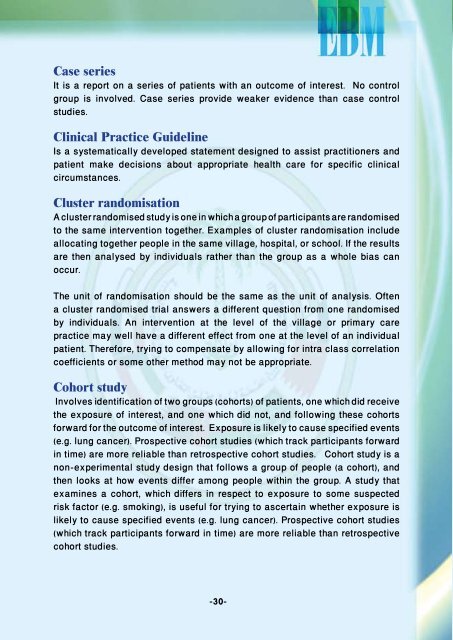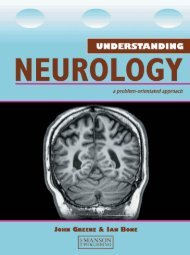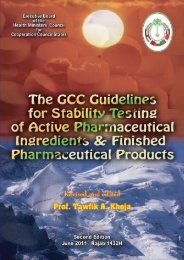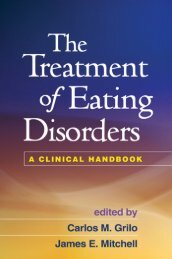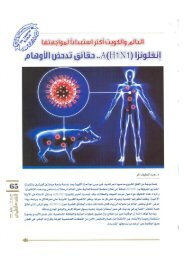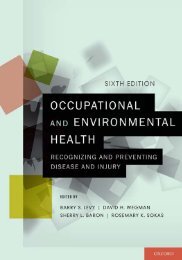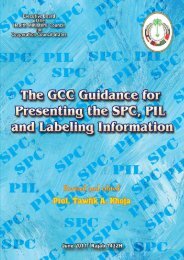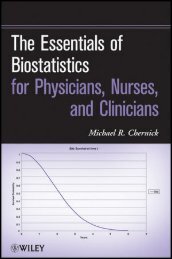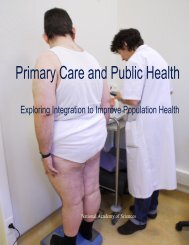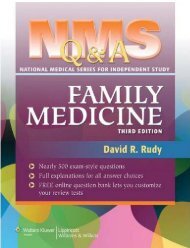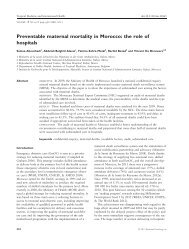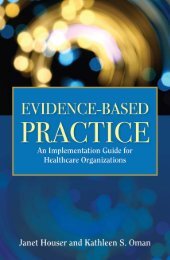Evidence-Based Medicine
Evidence-Based Medicine
Evidence-Based Medicine
Create successful ePaper yourself
Turn your PDF publications into a flip-book with our unique Google optimized e-Paper software.
Case series<br />
It is a report on a series of patients with an outcome of interest. No control<br />
group is involved. Case series provide weaker evidence than case control<br />
studies.<br />
Clinical Practice Guideline<br />
Is a systematically developed statement designed to assist practitioners and<br />
patient make decisions about appropriate health care for specific clinical<br />
circumstances.<br />
Cluster randomisation<br />
A cluster randomised study is one in which a group of participants are randomised<br />
to the same intervention together. Examples of cluster randomisation include<br />
allocating together people in the same village, hospital, or school. If the results<br />
are then analysed by individuals rather than the group as a whole bias can<br />
occur.<br />
The unit of randomisation should be the same as the unit of analysis. Often<br />
a cluster randomised trial answers a different question from one randomised<br />
by individuals. An intervention at the level of the village or primary care<br />
practice may well have a different effect from one at the level of an individual<br />
patient. Therefore, trying to compensate by allowing for intra class correlation<br />
coefficients or some other method may not be appropriate.<br />
Cohort study<br />
Involves identification of two groups (cohorts) of patients, one which did receive<br />
the exposure of interest, and one which did not, and following these cohorts<br />
forward for the outcome of interest. Exposure is likely to cause specified events<br />
(e.g. lung cancer). Prospective cohort studies (which track participants forward<br />
in time) are more reliable than retrospective cohort studies. Cohort study is a<br />
non-experimental study design that follows a group of people (a cohort), and<br />
then looks at how events differ among people within the group. A study that<br />
examines a cohort, which differs in respect to exposure to some suspected<br />
risk factor (e.g. smoking), is useful for trying to ascertain whether exposure is<br />
likely to cause specified events (e.g. lung cancer). Prospective cohort studies<br />
(which track participants forward in time) are more reliable than retrospective<br />
cohort studies.<br />
-30-


